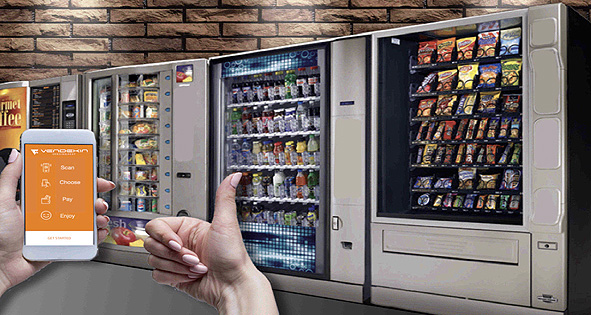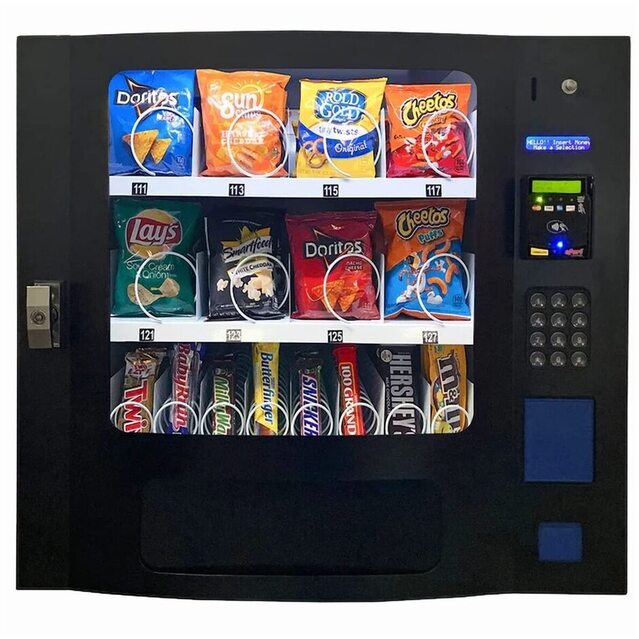In a world of convenience-driven consumerism, the rise of mini vending machines is transforming the way we shop. These compact, automated retail solutions are not just about quick purchases; they are shaping a future where we buy less but choose more mindfully. From sustainability to urban innovation, mini vending machines are disrupting traditional retail in ways many have never considered.
A Brief History: From Coin-Operated to AI-Powered
Vending machines date back to the 1st century AD, when Greek engineer Hero of Alexandria invented a coin-operated device to dispense holy water. However, the modern vending machine revolution began in the late 19th century with the introduction of postcard dispensers in England. Over time, vending machines expanded to sell everything from snacks to electronics.
Mini vending machines emerged as a response to shifting consumer behaviors—a move toward curated, compact retail experiences. Unlike their full-sized counterparts, these smaller units are designed for specific, high-demand products, reducing waste and encouraging more mindful shopping habits. Today, AI-driven mini vending machines are redefining retail landscapes worldwide.

The Rise of Micro-Retailing
The concept of micro-retailing is gaining traction as consumers seek quality over quantity. Mini vending machines align perfectly with this trend, offering:
- Curated selections: Instead of overwhelming customers with endless choices, these machines focus on select, high-quality products.
- Local and niche brands: Small businesses can now distribute their goods in high-traffic areas without the overhead costs of a full-scale store.
- Sustainable packaging: Many vendors prioritize eco-friendly packaging, reducing the environmental impact of impulse purchases.
- Personalized shopping experiences: Some machines use data analytics to suggest items based on previous purchases, creating a more engaging shopping experience.
The Science Behind Mindful Shopping
Psychologists suggest that decision fatigue—the mental exhaustion from making too many choices—can lead to impulsive buying. Mini vending machines counteract this by presenting a limited, thoughtfully selected range of products. This approach:
- Encourages deliberate purchasing decisions rather than impulse buys.
- Promotes a stronger connection between consumers and their purchases.
- Reduces wasteful spending and product excess.
- Helps consumers feel more confident about their purchases, avoiding buyer’s remorse.
Studies in behavioral economics show that when consumers are faced with too many choices, they may experience analysis paralysis, leading to poor purchasing decisions. By offering a minimalist yet high-quality selection, mini vending machines reduce anxiety, making shopping a more enjoyable and thoughtful process.
Technology at the Forefront
Emerging technologies are making mini vending machines smarter and more consumer-friendly:
- AI & Machine Learning: Predictive algorithms help vendors stock products based on real-time demand and customer preferences.
- Cashless & Contactless Payments: Mobile apps, facial recognition, and cryptocurrency integrations streamline the buying process.
- Augmented Reality (AR): Some mini vending machines now offer AR displays, allowing customers to visualize products before purchase.
- IoT Integration: Real-time inventory tracking ensures restocking efficiency and reduces product wastage.
- Biometric authentication: Some high-tech vending machines allow secure transactions through fingerprint or facial recognition technology.
- Eco-friendly energy solutions: Many vending machines are now powered by solar energy, reducing their carbon footprint.
Cultural Impact: Changing the Way We Buy
Mini vending machines are redefining shopping habits across different cultures:
- Japan: The nation famous for its innovative vending machines is now experimenting with mini vending units that cater to hyper-specific needs like fresh sushi, books, or emergency supplies.
- Scandinavia: Countries like Sweden are integrating vending technology with sustainable initiatives, offering reusable household products in compact dispensers.
- United States: Airports, shopping malls, and urban centers are seeing a rise in mini vending machines offering wellness products, books, and even high-end skincare.
- Africa & India: Rural regions benefit from solar-powered vending machines, providing essential goods in areas with limited retail infrastructure.
Sustainability and Environmental Impact
With concerns about environmental degradation on the rise, mini vending machines are taking steps toward sustainability:
- Reduced packaging waste: Since vending machines cater to single-serving purchases, many companies are turning to compostable or biodegradable packaging.
- Lower carbon footprint: Unlike traditional brick-and-mortar stores, vending machines require less energy, space, and human resources.
- Refillable product dispensers: Some vending machines now allow customers to refill reusable containers with products such as detergents, shampoos, or snacks.
- Smart inventory management: AI-driven inventory tracking ensures that food products do not go to waste, as items approaching their expiration date can be discounted in real-time.

- The Future of Mini Vending Machines
Looking ahead, mini vending machines may soon revolutionize sectors beyond retail, such as:
- Healthcare: Dispensing prescription medications, first-aid supplies, and feminine hygiene products in remote or high-traffic areas.
- Education: Providing study materials, USB drives, and stationery on college campuses.
- Sustainability: Machines dedicated to refilling reusable containers with household essentials, cutting down on plastic waste.
- Workplaces & Co-Working Spaces: Stocking personalized wellness and productivity-enhancing items for employees.
- Public Transportation Hubs: Offering healthy snacks, personal care products, and emergency essentials for commuters.
Moreover, customizable vending machines could allow consumers to create their own product bundles, selecting items via a mobile app and collecting their personalized package from the machine. This level of flexibility could bridge the gap between e-commerce and traditional retail.
Challenges and Considerations
While mini vending machines present many benefits, there are also challenges to consider:
- Initial investment costs: Advanced vending machines equipped with AI and IoT technology can be expensive to develop and deploy.
- Product variety limitations: Unlike full-scale stores, mini vending machines offer a limited number of products, which may not cater to all consumer needs.
- Maintenance and refilling logistics: Regular servicing is required to ensure machines remain stocked and functional.
- Cybersecurity concerns: As vending machines become more connected, they may be vulnerable to hacking or data breaches.
Conclusion
Mini vending machines are not just about convenience—they represent a paradigm shift in consumer behavior. As we move toward mindful shopping, these compact retail solutions encourage sustainability, personalization, and smarter purchasing decisions. Whether powered by AI or designed for niche products are reshaping how, what, and why we buy.
Their ability to provide quick, sustainable, and customized shopping experiences makes them an integral part of the future of retail. As technology advances, these machines will become more intuitive, environmentally friendly, and adaptable to consumer needs, ensuring that they remain at the forefront of the evolving retail landscape. Read More>>>>